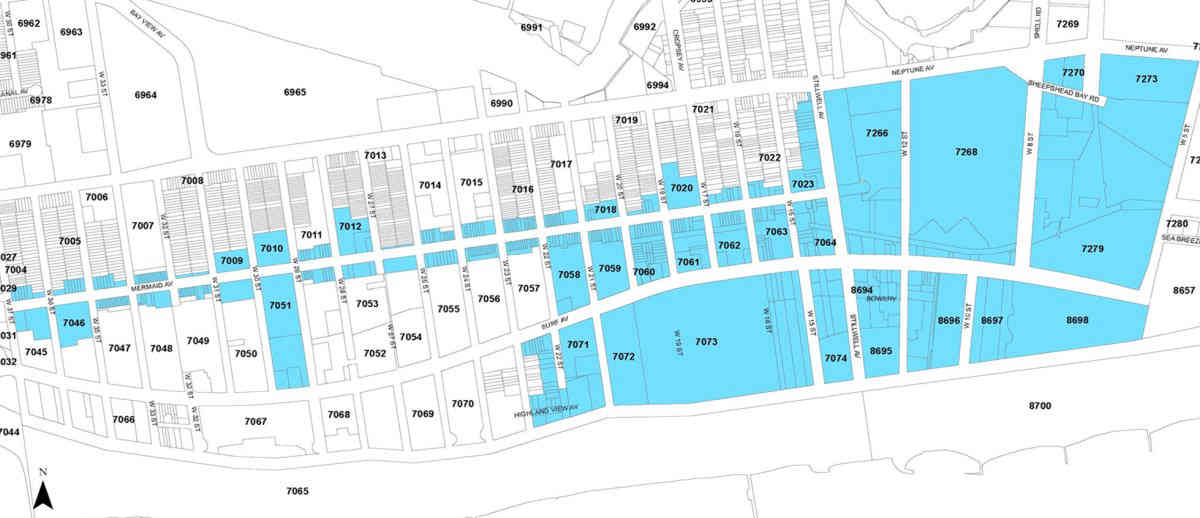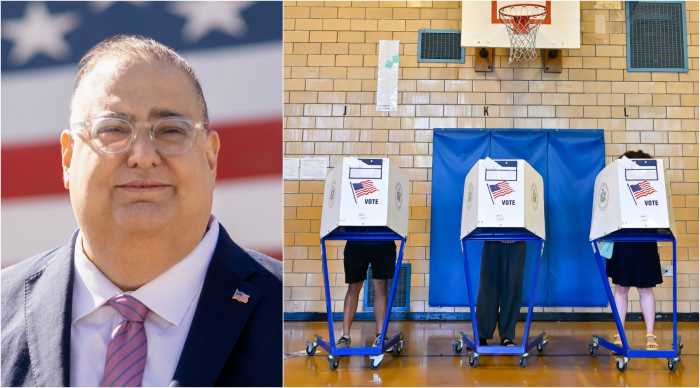They’re making a bid for change!
A contingent of Coney Islanders this month kicked off the formal process to create a city sanctioned business-boosting group in the neighborhood, which they say will stimulate the local economy by beautifying the area, providing support to mom-and-pop shops there, and attracting more tourists.
Leaders of community group Alliance for Coney Island on Dec. 5 hosted two public meetings to present their plan for the so-called Business Improvement District, or bid, which a rep said will go a long way to preserving and promoting commerce throughout the People’s Playground.
“We’re talking about how to strengthen and communicate the value of Coney Island as a brand,” said Alexandra Silversmith, the Alliance’s director.
An initial subcommittee of between 20 and 25 Coney residents, businesspeople, and property owners determined the general area served by the proposed bid, which would include properties along Mermaid Avenue, others on parts of Surf, Stillwell, and Neptune avenues, and those along the Reigelmann Boardwalk between W. Fifth and W. 23rd streets.
The subcommittee, whose members Alliance reps would not reveal at the meeting this newspaper attended, also put together the bid’s projected annual budget of $1.2 million, a figure that together with the district’s boundaries the city calls the “district plan.” Funds for that budget would be raised through special annual taxes — which the city calls “assessments” — on buildings and businesses within the district, which would go to pay for such services as sidewalk cleaning, new signage, and promotion of shops there.
An elected, volunteer board of directors consisting of property owners, business owners, and residents would oversee the operations of the bid, which would run independently under the jurisdiction of the city’s Department of Small Business Services. The board’s members would also set the revenue-generating taxes within the district, which are determined using a formula based on the type of property, its assessed value, and its square footage, according to Alliance reps, who added that the taxes would also pay the salaries of a full-time staff that manages the bid’s day-to-day operations.
Of the bid’s projected $1.2-million budget, 34 percent is earmarked for staff and general administration, 24 percent for tourism and special events on the avenues, 23 percent for sanitation, five percent for security and public safety, five percent for marketing, four percent for streetscape and storefront management, three percent for holiday lights, and less than one percent for workforce development, according to preliminary information from reps, who said city data shows that most of those projected allocations are more or less in line with averages for bids with annual budgets between $1 and $5 million.
Annual taxes levied on businesses and buildings in Coney’s amusement district — which bid proponents said would average more than $6,700 per entity — would foot nearly 75 percent of the organization’s $1.2 yearly budget, with taxes on Mermaid Avenue properties — averaging more than $1,600 per entity each year — footing about 16 percent, and taxes on Neptune Avenue businesses — averaging more than $15,000 per entity each year — footing about 13 percent.
The higher annual taxes on Neptune Avenue properties are due to the generally larger average square footage of businesses in the area, which include Applebee’s and the various eateries inside the Coney Island-Stillwell Avenue subway station, according to Silversmith, who said that dollar amount will likely come down following the completion of the mixed-use Neptune/Sixth development on Neptune Avenue between West Fifth and Sixth streets.
Opponents of the proposed bid argue they shouldn’t have to shell out more cash for some of its services, such as cleaning streets outside their shops, which some say they do free of charge themselves. Last year, no less than 30 owners of businesses on Mermaid and Neptune avenues signed a petition against the scheme, claiming the “additional tax burden and loss of autonomy … is excessive from any foreseeable benefits,” according to Coney Island News.
But advocates — including those from the Alliance — defended the idea by highlighting that the money goes back into the pockets of entrepreneurs through supplemental services, such as street beautification, that they would not receive otherwise.
Alliance leaders began floating their idea for the bid last June, after wrapping a study with the city’s small-business-services agency on Coney’s commercial needs, challenges, and opportunities for growth, which showed that nearly 12 percent of storefronts on the neighborhood’s major business corridors are vacant, a figure nearly twice the city’s average.
Supporters of the bid expect its public-review process — which includes going before the local community board, the City Planning Commission, Council, and Mayor DeBlasio — to take about a year, during which they promised to keep sharing feedback on the plan, and continue to engage with entrepreneurs to build more support for it, Silversmith said.
























